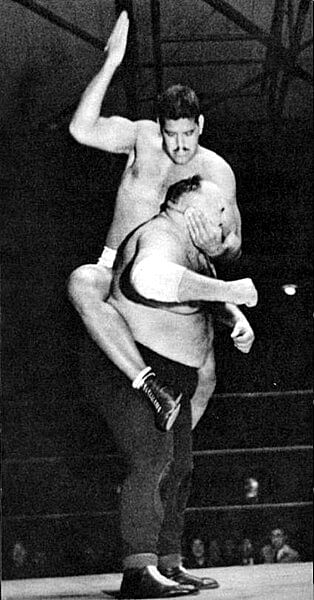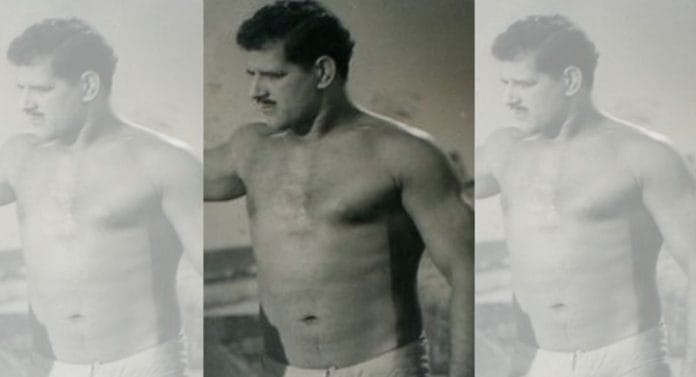When Dara Singh lifted King Kong off the ground and twirled him around before flinging him out of the ring in 1956, India cheered. The victory cemented his place in the annals of international professional wrestling.
Nearly 20 years later, India’s most famous wrestler was in the headlines again. But this time, he was caught between Sikh groups from Amritsar and the Emergency declared by then-Prime Minister Indira Gandhi.
Dara, who by then had turned to films, released his most ambitious project, Raj Karega Khalsa, (1975), which featured Rajesh Khanna and Neetu Singh in a qawwali. The movie revolved around Kartar Singh, a Hindu who converted to Sikhism to fight Mughal oppression. But the film was released just two days before Gandhi declared a state of Emergency on 25 June 1975.
It came under intense scrutiny. Giani Zail Singh, then-Punjab chief minister and close family friend to Dara, and Budha Dal chief Santa Singh wanted a series of changes to be made to it, as Seema Alimchand writes in her biography, Deedara aka Dara Singh! (2016).

There were fears that the movie would cause widespread riots. To add to this, accusations of misrepresentation of Sikh warriors and religious symbols intensified, pitting Dara‘s fans against his critics. Screenings in Amritsar, Jalandhar, and other cities in Punjab were cancelled. In an attempt to defuse the tension, Dara re-released the film with multiple changes and a new name, Sava Lakh Se Ek Ladaun (1976).
In 1979, Dara received an apology letter from Santa Singh. But the events of those turbulent years informed the change in Dara’s political allegiance. The once-Congress supporter joined the Bharatiya Janata Party in 1998. At a press conference, he held the Congress accountable for “pushing the country into the quagmire of instability.” He went on to become the first MP sportsperson in 2003.
When Dara passed away at the age of 83 on 12 July 2019, the New York Times called him ‘India’s first superhero’.
A gentle giant
Dara aka Deedar Singh Randhawa was born to a Jat Sikh family in Dharmuchak village in Amritsar, Punjab and was encouraged to take up wrestling from an early age. As an adult, he was 6 feet 2 inches tall and weighed 127 kilograms.
Today, Dara is remembered as a pro wrestler, actor, director, producer, and politician. But for his family, he was the father who ‘loved nature’, the uncle who was the ‘gentlest of humans’, and a proud grandfather.
“Nature was his favourite thing. Until his death, he remained curious about everything. More than a father, I hold dear the memories of him when he became a grandfather. He was ecstatic when my child took the first step,” said Dara’s daughter, Deepa Randhawa who now lives in the United States. “He was progressive,” she said.
“A lot of people think the generations that came before were very good and the present generation is bad, but I am not one of them … Life is always moving forward.”
—Dara Singh
On one of his tours in 1959, Dara was offered US citizenship but declined due to his love for India. That same year, he wrote a letter to then-Prime Minister Jawaharlal Nehru listing three reasons why they should meet.
“One, to shake hands with him so that he could tell people that he’d met Jawaharlal Nehru; second, to invite him to the ongoing Commonwealth championships; and lastly because of his friend, the wrestling promoter, M Gogi whose lifelong dream had been to meet the Prime Minister,” writes Alimchand in her book.
A week later, Dara got a call from the Prime Minister’s Office to arrange a meeting.
When they met, Dara appealed to Nehru on behalf of professional wrestlers in India.
“There [in other countries], the wrestlers have associations that look after their needs and their diet. But here, wrestlers have to manage on their own,” read an article in The Indian Express.
Away from the ring, Dara had a reputation for being soft-spoken. His niece, Shehnaaz Randhawa, the daughter of his younger brother Sardara, remembers him as ‘Bade Daddy’, who exuded a sense of security and safety.
“I revered him. Although he was a wrestler, he was the gentlest of human beings. They don’t make people like him anymore,” she said.
Also read: The Great Gama was the ‘undefeated wrestler of India’. Beat European champion in 3 seconds
Iconic roles in film and TV
Dara gave up professional wrestling in 1983 along with his title, ‘Rustam-e-Hind’. Though he left professional wrestling, he didn’t leave behind the limelight. Instead, he turned to the entertainment industry, appearing in several Hindi and Punjabi movies including Sikander-e-Aazam (1965), Sher Dil (1965), and Kal Ho Na Ho (2003).
His most memorable role was that of Hanuman in the iconic TV show Ramayan (1987). His last on-screen appearance was in Imtiaz Ali’s Jab We Met (2007), where he played a strict but loveable grandfather.
In 2018, he was posthumously inducted into the WWE Hall of Fame Legacy.
Dara had a progressive outlook on life. In an interview, he said that he did not believe true strength and vitality were only to be found in his generation.
“A lot of people think the generations that came before were very good and the present generation is bad, but I am not one of them … Life is always moving forward.”
(Edited by Prasanna Bachchhav)






